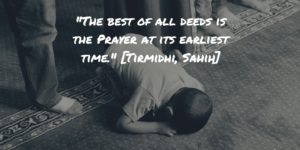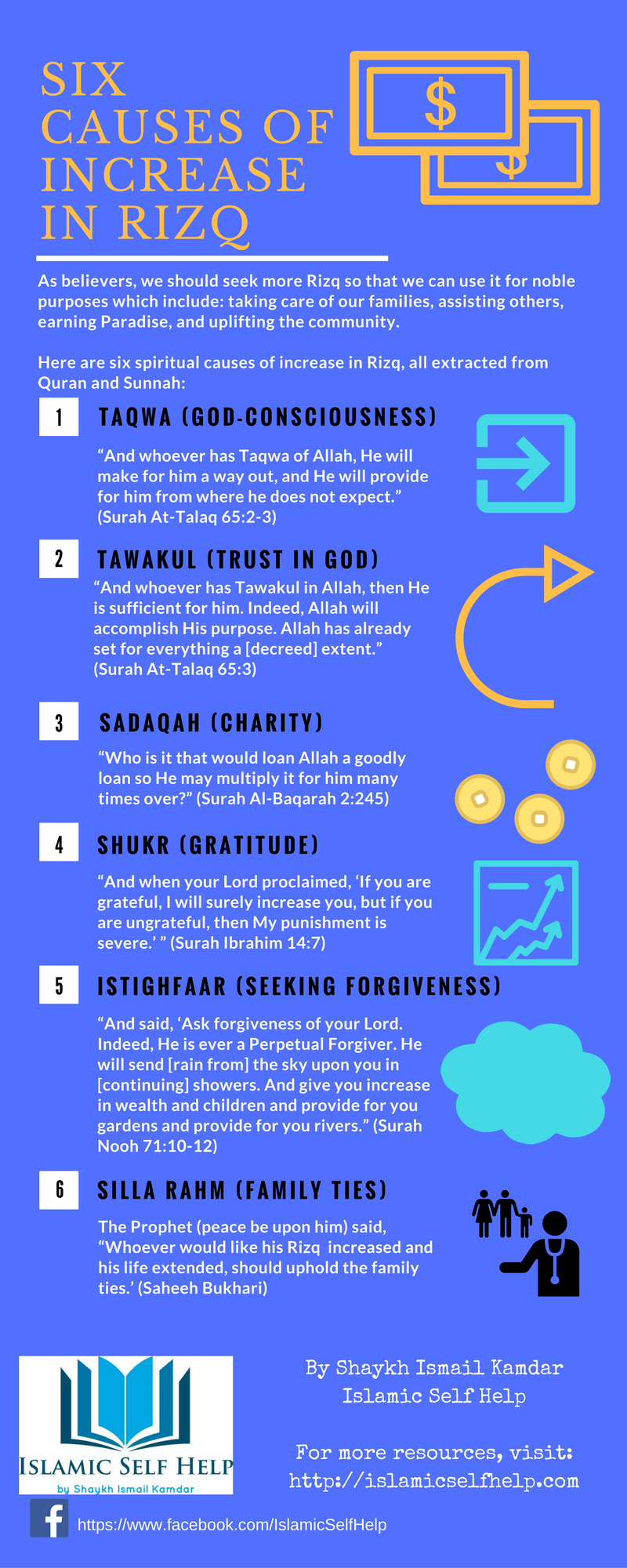The Asma Al Husna and Optimism
The Asma Al Husna
In the Quran, Allah refers to Himself by dozens of names, collectively called the Asma Al Husna (The beautiful names). Each of these names encompass a perfect attribute of Allah. It is very important that we take the time to study, analysis and reflect on these names. Doing so will help us to understand our Creator and improve our relationship with Him.
In this article, I wish to share some of my personal reflections on some of the names of Allah that inspire optimism. These are not the only names of Allah that inspire optimism, and this is not the only benefit from these names. However, I hope this article will assist you in reflecting on these names and increasing in your optimism accordingly.
Ar-Rahman and Ar-Raheem
Both of these names refer to Allah’s perfect Mercy. Ar-Rahman refers to His Mercy that encompasses all of the creation, while Ar-Raheem refers to His special Mercy for the believers.
When we reflect on these names, our hope in Allah’s Mercy should increase. In this world, we see expressions of Allah’s mercy all around us. We must have hope that Allah will have mercy on us, just as He has shown His Mercy to so many before us. Whenever you feel the need for Mercy, call on Allah by these names and ask Him for it.
Al-Kareem
One of the translations of Al-Kareem is the Most Generous. A generous person is called Kareem, and the verb form of this word is used in the Hadith instructing us to be generous to our guests and neighbors. Allah’s generosity is perfect and limitless.
To benefit from Allah’s Generosity, we must strive to obey Him and then make dua utilizing this name asking for whatever we want. We must be optimistic that the Most Generous will provide for us generously. Call on Allah by this name when asking Him for the things of this world and the next.
Al-Wahhab
Al-Wahhab translates as The Giver of Gifts. Not only is Allah most Generous but He gives us gifts that we don’t deserve and gives us more than we realize. Reflect on your life and how many times Allah gifted you with good things, despite your sins.
Some people have developed the negative attribute of asking people for freebies. This is not appropriate for believers as it is a form of begging. If you desire something, do not ask people for it. Rather call upon Al-Wahhab as He is the one who can give you gifts you never imagined.
At-Tawwaab
At-Tawwaab means the One who accepts all repentance. This name of Allah should inspire even the biggest sinner. No matter how great a sin you have committed, if you sincerely repent then At-Tawwaab will accept your repentance. Whenever you feel despondent about your sins, reflect on the name At-Tawwaab, and reflect on the following Hadith Al-Qudsee:
Anas Ibn Malik (RA) narrated: I heard the Messenger of Allah (saw) say, “Allah the Almighty has said: ‘O Son of Adam, as long as you invoke Me and ask of Me, I shall forgive you for what you have done, and I shall not mind. O Son of Adam, were your sins to reach the clouds of the sky and you then asked forgiveness from Me, I would forgive you. O Son of Adam, were you to come to Me with sins nearly as great as the Earth, and were you then to face Me, ascribing no partner to Me, I would bring you forgiveness nearly as great as it [too].’ ” (Tirmidhi)
I hope this article has inspired you to be optimistic and to strengthen your relationship with Allah through reflecting on His Asma Al Husna.
4 Personal Development Lessons from Surah Duha

Lessons from Surah Duha
Surah Duha is considered one of the earliest Surahs to be revealed in Makkah. It was revealed at a time which the Prophet (pbuh) faced great emotional stress regarding the future of Islam. The core theme of this Surah is one of hope and optimism. This makes it an excellent Surah to analyze for personal development lessons.
Translation of Surah Duha
- By the morning light
- And by the night when it darkens
- Your Lord has not forsaken you, nor is He displeased
- And what is to come is better for you than what has passed
- And soon Your Lord will give you and you will be pleased
- Did He not find you an orphan, and He gave you a family?
- And He found you wondering, and granted you guidance
- And He found you in need, and enriched you
- So as for the orphan, do not mistreat him
- And as for the beggar, do not repel him
- And as for the blessings of your Lord, then proclaim
Lesson One: Be Optimistic
This is the core theme of this Surah and as such, it is the primary lesson of this Surah. As Muslims, our approach to life must be one of optimism. We are not meant to be a pessimistic people. Rather, we must live our lives with hope in Allah’s Assistance and Mercy.
Every project we undertake must be fueled by optimism and hope. We must trust that Allah will help us eventually, if we are sincere and if the project is beneficial for the ummah. It is this attitude that should drive us forward.
Lesson Two: Be Grateful
In order to maintain optimism, this Surah also reminds us of the times in the past when Allah assisted His Messenger (peace be upon him). In our own lives too, there are many times in the past when Allah granted us success and turned around a bad situation.
We must reflect on such times, be grateful for them, and use them as further motivation to maintain optimism that Allah will continue to assist us moving forward.
Lesson Three: Be Charitable
A believer’s goals are not selfish and materialistic. Our goals should revolve around the ummah, and one way to build this is to become people of generosity. Generosity fuels the Muslim world and causes everybody to grow. The generous person is blessed by Allah, and his wealth multiples because of it. The one who receives the charity also is blessed and now has some money to move his own life forward.
Charity is a Win/Win situation. Everybody benefits and everybody grows. This is what believers should may for. We must avoid paths and goals that make us selfish and materialistic. Our focus must remain on serving others, and that begins by being generous.
Lesson Four: Contribute to society
Generosity must lead to an ummah-centric personality. A Muslim’s goals should be goals that uplift and benefit the ummah. Every project should aim at benefiting others. If our primary goal is to assist the ummah, then Allah will put Barakah in our efforts, businesses, wealth and time. Service should drive us forward, as we are one ummah and we all want to see this ummah rise up in greatness again.
Bringing it all together
Be positive about the future, remember Allah’s blessings on you in the past, be generous and serve the ummah. These are some of the lessons we can extract from Surah Duha, and these concepts will drive us forward with Ihsaan (excellence) as an ummah.
For more Tafseer, check out our eBook below:
6 Ways to Increase Rizq Infographic
How To Be The Best – 4 More Hadiths
How to be the best spiritually
Note: This is part two of our series on How to be the Best. Click here to read Part One.
In the first article of this series, we focused on five Hadiths related to manners and relationships; and how to be the best in that area.
In this second article, we will continue looking at Hadiths about being the best. The focus this time, however, is on the best acts of worship. Islam teaches us to compete in good deeds and to strive to be the best of worshipers. These four hadiths teach us some of things we should focus on in order to achieve that goal.
Salah is the most fundamental act of worship, and the primary physical pillar of our faith. It is the one act of worship we are commanded to do five times a day, throughout our lives, in good health and illness. Due to the central importance of Salah in Islam, all of these Hadiths focus on different aspects related to Salah.
“The best of all deeds is the Prayer at its earliest time.” [Tirmidhi, Sahih]

The first important aspect is the timing. Praying fives a time is the most important act of worship that every Muslim must do. It doesn’t make you the best of Muslims, it just makes you Muslim.
However, the reward of the Salah is magnified for those who pray it at its earliest time. There are many people who delay Salah until the time is almost over. If we want our Salah to be accepted as the best of deeds, we must make it a habit to pray each Salah at its earliest time.
“The best of places are the Masjids and the worst of places are the markets.” [Tabarani, Hasan]
Continuing on the topic of Salah, prayer in the Masjid is generally more rewarding for men than praying at home. There is also strong evidence that praying in congregation in the Masjid is Wajib (obligatory) for men. I too believe that when there is no excuse, it is an obligation for a man to pray his Salah at the Masjid.
However, this Hadith has a deeper meaning. This Hadith is really teaching us where we should spend most of our time. The best place that a Muslim can spend time in is the Masjid. Salah, dua, reciting Quran and attending Islamic classes are all acts of worship that are associated with Masjids. In general, time spend in the Masjid is spent building one’s Afterlife.
The Hadith compares this with market places (and in modern context, that includes shopping malls). In Islam, markets exist as a necessity of life. We go there to earn a living or purchase necessities. But loitering in such places leads to many problems like attachment to this world, materialism, failure to lower one’s gaze and wasting time.
This is why the Prophet (pbuh) called it the worst places. By this, he means that they are the worst of Halal places to be in. Markets are not considered worse than Haraam places like casinos, nightclubs, and places of Shirk. The key point of this Hadith is that we should only go to shops when necessary and should spend more time in Masjids, as this is best for us.
This is the opposite of the common practice today of being in and out of Masjids quickly when needed, while spending long hours loitering in Malls. May Allah guide us all to spend our time wisely and understand what is better for us.
“The best of you are those with the softest shoulders during prayer.” [Bayhaqi, Hasan]
A third Hadith on Salah is related to the effect of the Salah on the individual. While Salah must be prayed on time and in the Masjid, its impact on the soul is most important in spiritual development. This Hadith teaches us that the best Muslims are those who are moved by their Salah. The metaphor of softest shoulders refers to a Salah that fills us with humility, Taqwa and Khushoo.
In Surah Al-Muminoon, Khushoo in Salah is also listed as the first quality of the successful believers. This point is emphasized in many verses and hadiths. If we wish to be the best, we must continue to improve the quality of our Salah until it becomes a source of inner peace and guidance for us. This can be done by clearing our intentions, increasing our focus and learning to understand what we recite.
“The best of people in recitation are those who when they recite, you see that they fear Allah.” [Bayhaqi, Sahih]
Just like Salah, our recitation of Quran must have an impact on our souls. The best of Muslims are those who are moved by the Quran and whose hearts fill with the fear of Allah when reciting Quran. This applies both in and out of Salah. Regarding the true believers, Allah says, “When His verses are recited to them, it increases their faith,” (Surah Al-Anfaal 8:2)
So to be the best, the quality of our Salah and Recitation matter. We cannot rush through Salah or recite Quran ritually. We must do it sincerely for Allah’s sake and in a manner that brings us closer to Allah.
In order for our recitation to have this impact, we must choose a time when we are free from distraction, clear our intentions, understand what we are reciting and reflect on it. These steps will help develop our connection with the Quran.
More Hadiths on being the best coming soon…




